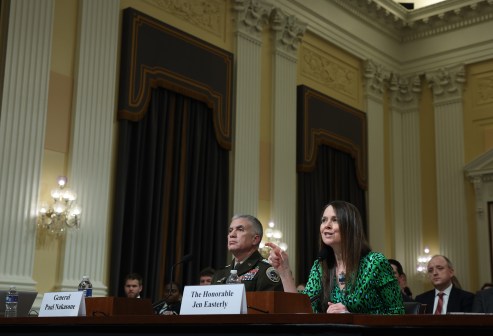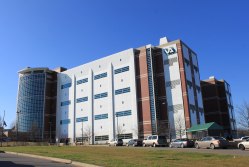Veterans Affairs Chief Technology Officer & Senior Advisor to the Secretary Dr. Peter Levin discusses cybersecurity, protecting health information records, supply chain management and making encryption accessible on FedScoopTV.
Excerpts
Why is cybersecurity such an important part of your organization’s technology priorities?
“If we lose a patient’s record, they’ve lost their privacy. There’s no window you go to to get your privacy back. That’s going to have profound implications, not just for that person, but for employment opportunities, for their personal sense of security, but also for the general sense of trust that society has, not just in VA, but generally in electronic health record interoperability. Electronic health record interoperability is the key to health care reform. It’s one of the pillars that health care reform depends on.”
Are there security concerns with the rapid adoption of cloud computing in agencies?
“The consolidation of our data centers is not an inherently dangerous thing, so whether you put them in the cloud or you put them in physical locations where everybody knows about, there’s not … from my cybersecurity perspective, not a huge material difference. I think there’s a lot of hype, a lot of misunderstanding about what that means to put it in the cloud. I personally keep my records in the cloud … When I think of the cloud opportunity, I think of it as convenience … performance … and in terms of economic benefit, and I don’t really think of it in terms of compromised security. You can make a strong argument that it’s better, because I don’t know where it is and you don’t either.”
What’s next for cybersecurity? How will innovation change how we manage cyber threats over the next few years?
“There are two huge opportunities, I think, in cybersecurity. The first one is the general and quite frankly somewhat un-glamourous notion of supply chain management. If we look at who’s writing the software, and who are building the chips that go into our critical infrastructure, we’re going to want to have a higher sense of confidence, higher sense of security that those devices are safe … The second one is about convenience, and the grand challenge there is to make sure that people not only feel safer and more secure on the Internet … and to do this in a way that is … much more easy, reliable, safe to use. You’re going to see a lot of innovation in that area. Ultimately, it comes down to making encryption accessible to the masses.”





